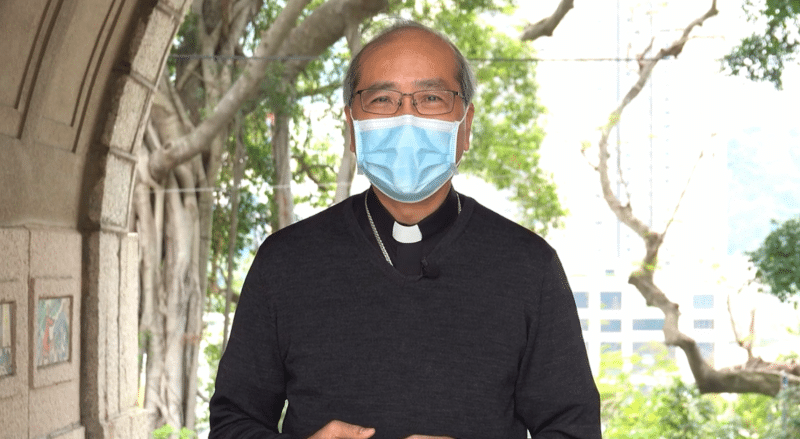
HONG KONG (UCAN): “If the fundamental problem is not solved, people will just continue to come out and protest,” said Auxiliary Bishop Joseph Ha Chi-shing of Hong Kong, adding that the city’s administration has ignored the demand to appoint an independent commission of inquiry to probe police violence against protesters.
In fresh unrest on Mothers’ Day, May 10, police arrested more than 200 anti-government protesters following clashes in at least seven shopping malls across the city. As the Covid-19 coronavirus (SARS-CoV-2) pandemic showed signs of subsiding and social distancing measures were eased, thousands of people gathered to resume the protests that have been on the backburner for the past few months.
Police announced that the crowds in the malls were in violation of regulations limiting gatherings to groups of eight people, the fired pepper spray and began to forcefully disperse people shouting slogans and singing songs, and demanding the resignation of the city’s chief executive, Carrie Lam Yuet-ngor.
Rights advocates say that since the protests boiled over in June last year, police have used brutal force to suppress it, resulting in the death of at least two protesters and many arrests.
The protests were triggered by a now-scrapped Fugitive Offenders and Mutual Legal Assistance in Criminal Matters Legislation (Amendment) Bill that would have allowed transfers of fugitives to jurisdictions that do not have extradition agreements with Hong Kong, including Taiwan and mainland China.
In the afternoon police announced inside malls that government regulations prohibit crowds in public places. They also urged people to keep a social distance. Riot police then arrived and began to forcibly disperse protesters.
Bishop Ha said, “The deeper issue is this: the public needs to know how and when the government plans to set up an independent commission of inquiry” into alleged police brutality against protesters.
“It is the most important issue,” he said.
Jackie Hung Ling-yu, project officer of the Justice and Peace Commission, said the inquiry is only one of five demands.
Lam finally withdrew the extradition bill last September. However, protesters insist that the government meet their other four demands: an inquiry into police brutality, the release of all arrested protesters, an end to describing protests as “riots” and the resignation of Lam and introduction of universal suffrage for electing the Legislative Council and the chief executive.
“The government didn’t respond to the five demands. I think it’s acceptable if some of them gather and sing in the mall. They expressed their demands in a peaceful manner,” Hung said.
She pointed out that both ordinary citizens and the police are victims of the government. “The government allows police to bully the citizens and the citizens hate them in return,” she said.
One Hongkonger, Monica, said she and her family went out to celebrate Mothers’ Day but saw riot police waiting in full gear. She suspected trouble and left the area.
May, another Hongkonger, said she was not part of any protest but was returning from the Harbour City mall in Tsim Sha Tsui, when two police officers stared at her. “The riot police stared at people as they passed by without any kindness.”
The relationship between the police and the public in Hong Kong has completely “broken down because the police have no respect for the public and the public (do) not feel good about police,” she said.










